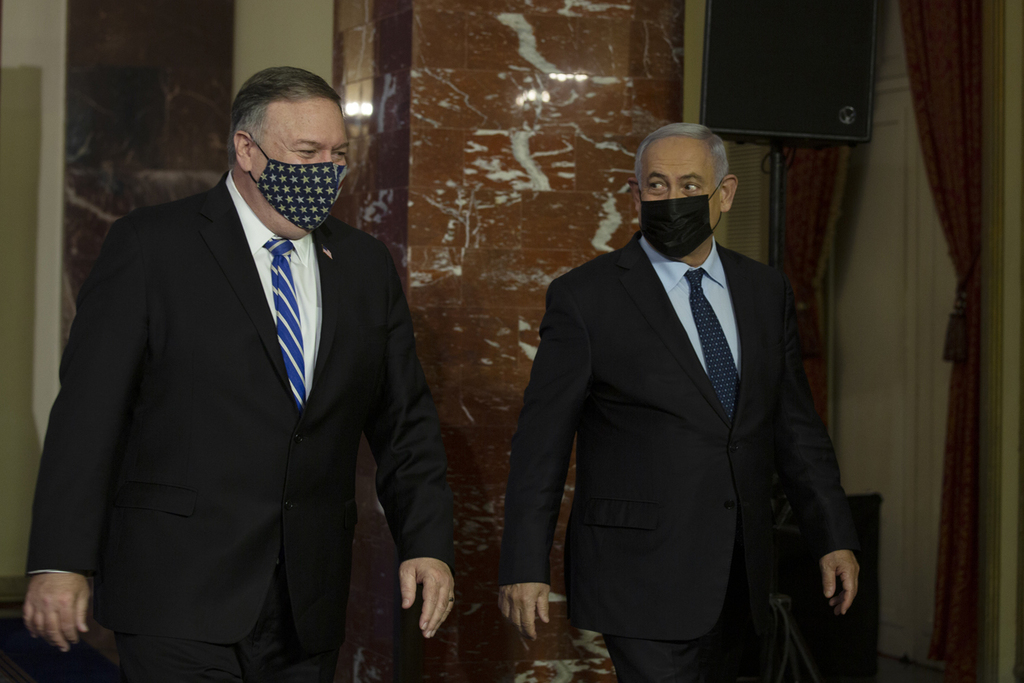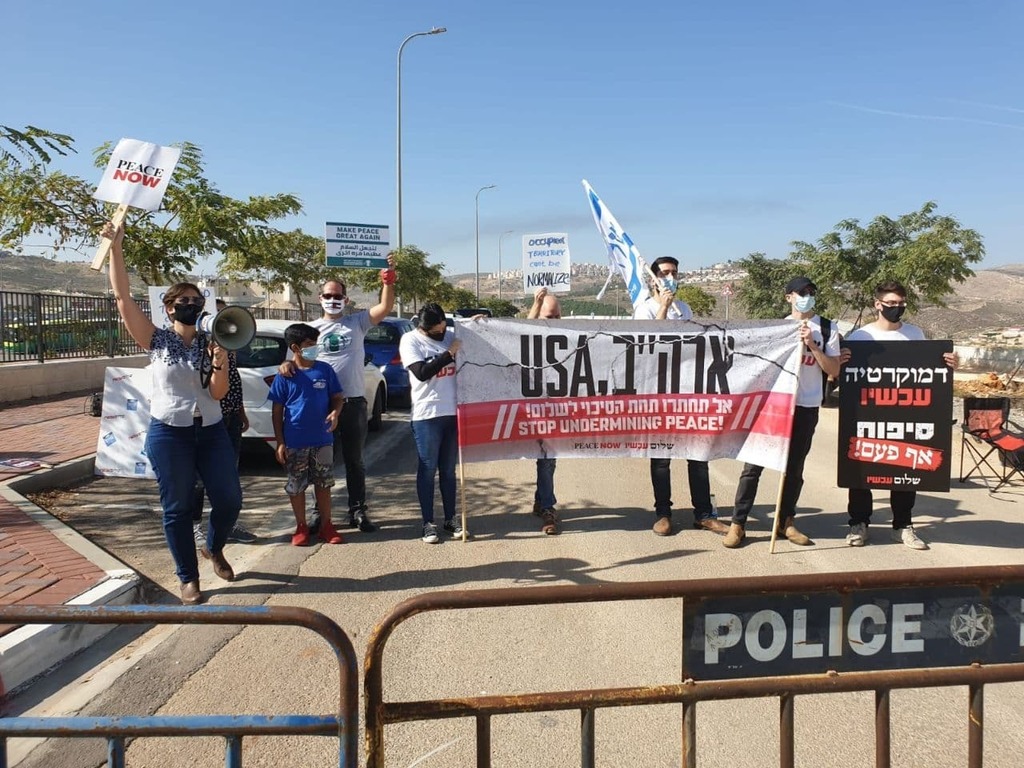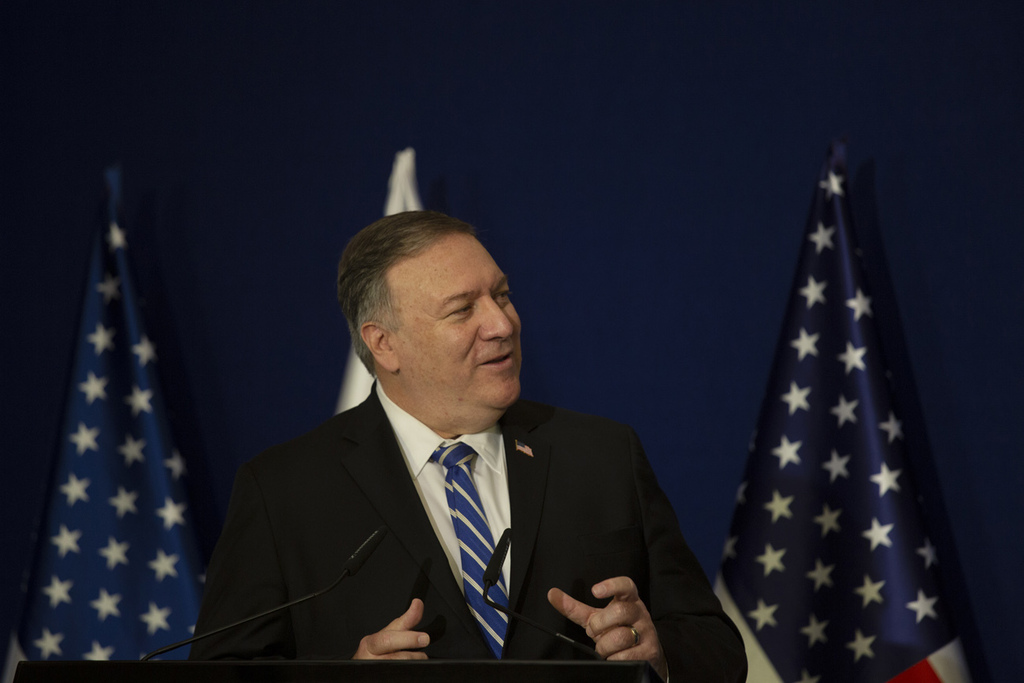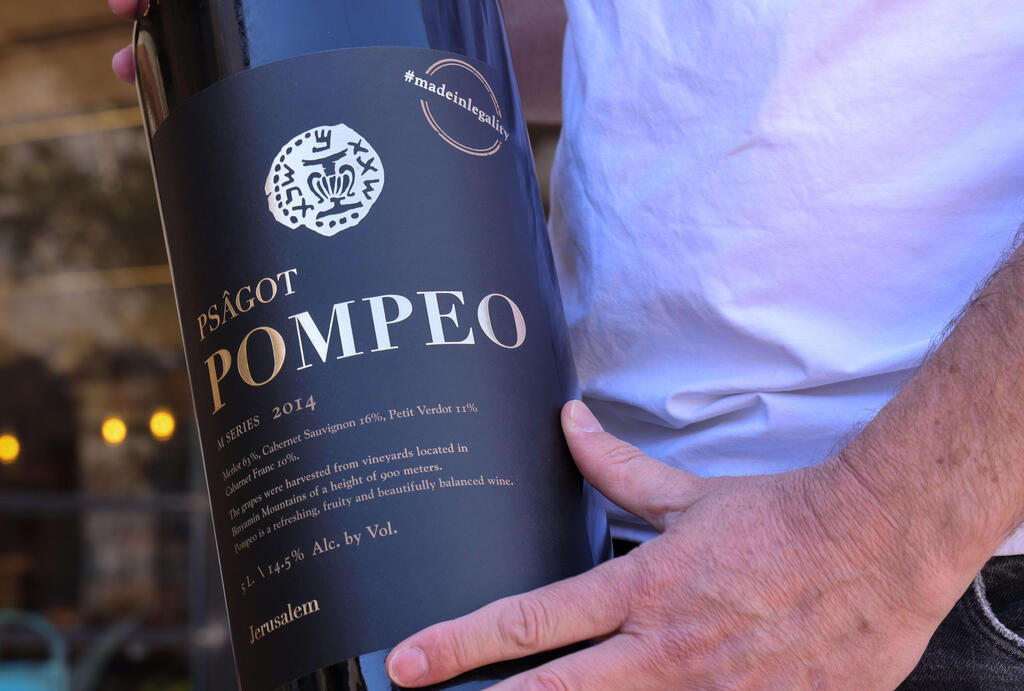Getting your Trinity Audio player ready...
The United States will require that imports from Israeli settlements in the West Bank be labeled as having been "Made in Israel" or "Product of Israel", Secretary of State Mike Pompeo said in a statement on Thursday.
According to a Nov. 16 statement by four Republican senators, the previous Democrat administration's guidelines were for such settlement products to be labeled as "Made in West Bank".
Pompeo gave the statement during the first visit by a U.S. secretary of state to an Israeli settlement in the West Bank, which Palestinians seek for a future state, in a show of solidarity with Prime Minister Benjamin Netanyahu by the Trump administration.
Palestinians accused Pompeo, who planned to follow up the visit to the Psagot settlement near Jerusalem with a trip to the Golan Heights - a territory Israel captured from Syria in the 1967 Six-Day War - later in the day, of helping Israel cement its hold on West Bank land.
To Israel's delight and Palestinian dismay, Pompeo announced a year ago that the United States no longer viewed Israel's settlements on land it captured in the 1967 Middle East war as "inconsistent with international law".
In the West Bank, Pompeo toured the Psagot settlement's winery - it has named one of its wines after him. The visit was a sharp departure from past U.S. policy that had kept top U.S. government officials away from settlements, which Palestinians view as obstacles to a viable future state.
Before heading to the West Bank, Pompeo met Netanyahu, who praised Trump for recognizing Jerusalem as Israel's capital and Israeli sovereignty over the Golan, over which Israel applied sovereignty in 1981 in a move few countries have accepted.
"The simple recognition of [the Golan] as part of Israel, too, was a decision President Trump made that is historically important and simply a recognition of reality," Pompeo said.
Trump's defeat in the U.S. presidential election was viewed by many Israelis with dismay, and Netanyahu waited 10 days after Joe Biden declared victory to speak with the Democrat candidate and refer to him as president-elect.
The Palestinian leadership cut off ties with the White House three years ago, accusing it of pro-Israel bias.
'INTOXICATED'
Hanan Ashrawi, a veteran Palestinian negotiator, accused Pompeo of using Trump's final weeks in office "to set yet another illegal precedent, violate international law and perhaps to advance his own future political ambitions".
4 View gallery


U.S. Secretary of Stae Mike Pompeo and Prime Minister Benjamin Netanyahu
(Photo: AFP)
"Pompeo is intoxicated by apartheid wine stolen from Palestinian land. It is opportunistic and self-serving, and it damages the chances for peace," Ashrawi told Reuters.
It is unclear whether Trump's decision on settlements would be reversed by a future Biden administration, amid Israeli concerns he will take a tougher line on the issue in general.
Pompeo, who announced new U.S. sanctions on Iran while in Israel, said Washington would also step up action against pro-Palestinian efforts to isolate Israel economically and diplomatically.
"I want you to know that we will immediately take steps to identify organizations that engage in hateful BDS (Boycott, Divestment and Sanctions) conduct and withdraw U.S. government support," he said.
4 View gallery


Anti-settlement watchdog Peace Now members picket Pompeo's visit at a West Bank winery
(Photo: Peace Now)
"We will regard the global anti-Israel BDS campaign as anti-Semitic," Pompeo said. Supporters of BDS dispute that designation, saying they are against all forms of racism.
U.S.-based Human Rights Watch said Pompeo had falsely equated peaceful support for boycotts of Israel with anti-Semitism.
"Instead of combating systemic racism and far-right extremism in the United States, the Trump administration is undermining the common fight against the scourge of anti-Semitism by equating it with peaceful advocacy of boycotts," said Eric Goldstein, the group's acting Middle East and North Africa director.
Pompeo later travelled to the Golan Heights with his Israeli counterpart, Foreign Minister Gabi Ashkenazi.
"I very much wanted to come here on this trip to tell the world that we have it right. That we, the United States has it right. That Israel has it right," Pompeo said.
"Each nation has the right to defend itself in its own sovereignty," he added.
First published: 14:43, 11.19.20



